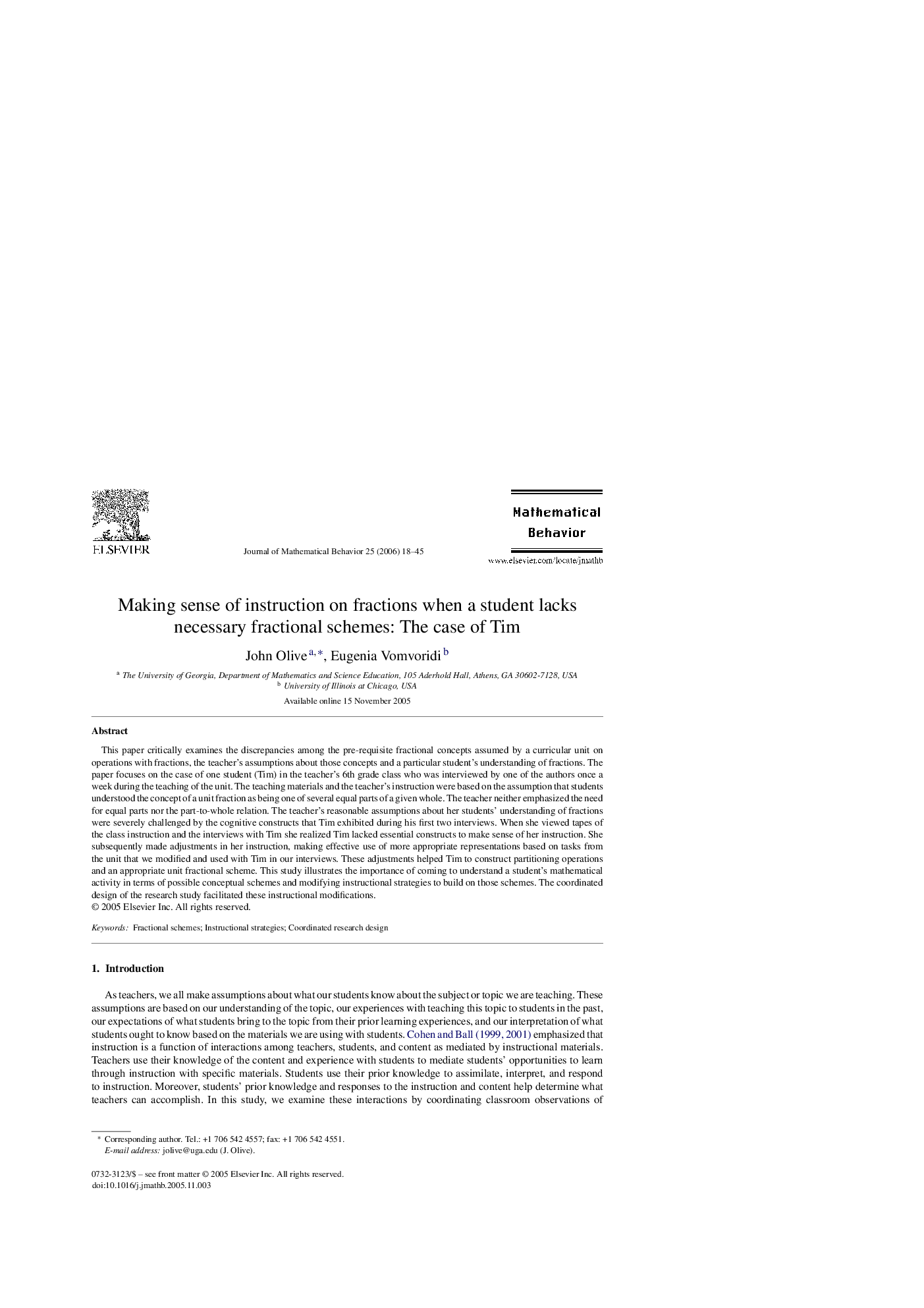| Article ID | Journal | Published Year | Pages | File Type |
|---|---|---|---|---|
| 360933 | The Journal of Mathematical Behavior | 2006 | 28 Pages |
This paper critically examines the discrepancies among the pre-requisite fractional concepts assumed by a curricular unit on operations with fractions, the teacher's assumptions about those concepts and a particular student's understanding of fractions. The paper focuses on the case of one student (Tim) in the teacher's 6th grade class who was interviewed by one of the authors once a week during the teaching of the unit. The teaching materials and the teacher's instruction were based on the assumption that students understood the concept of a unit fraction as being one of several equal parts of a given whole. The teacher neither emphasized the need for equal parts nor the part-to-whole relation. The teacher's reasonable assumptions about her students’ understanding of fractions were severely challenged by the cognitive constructs that Tim exhibited during his first two interviews. When she viewed tapes of the class instruction and the interviews with Tim she realized Tim lacked essential constructs to make sense of her instruction. She subsequently made adjustments in her instruction, making effective use of more appropriate representations based on tasks from the unit that we modified and used with Tim in our interviews. These adjustments helped Tim to construct partitioning operations and an appropriate unit fractional scheme. This study illustrates the importance of coming to understand a student's mathematical activity in terms of possible conceptual schemes and modifying instructional strategies to build on those schemes. The coordinated design of the research study facilitated these instructional modifications.
